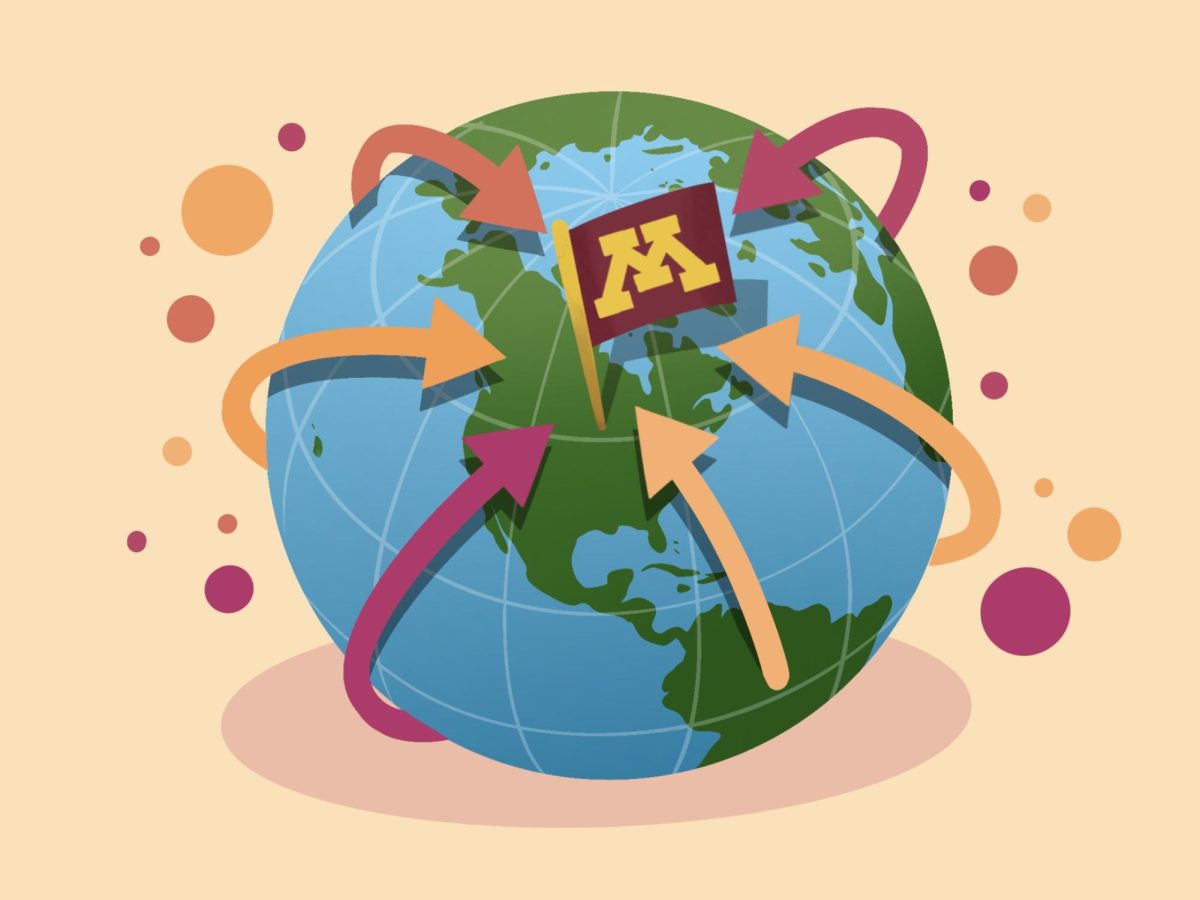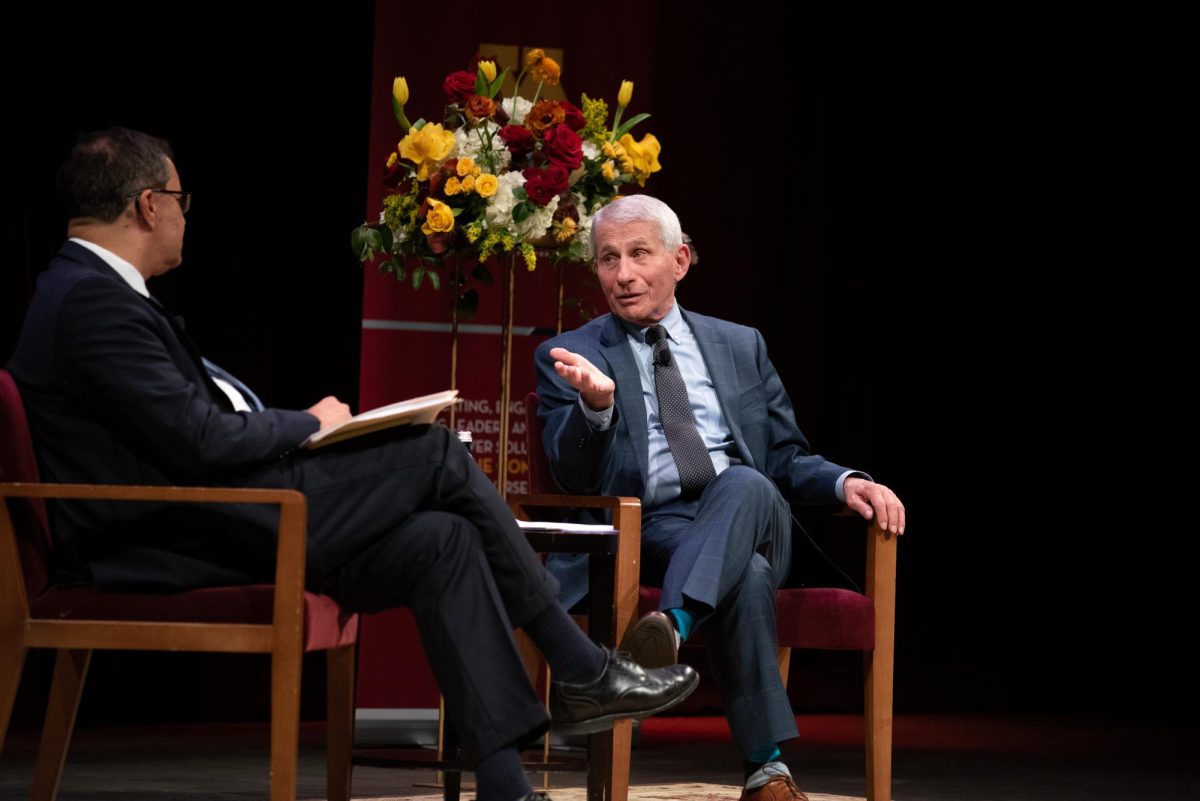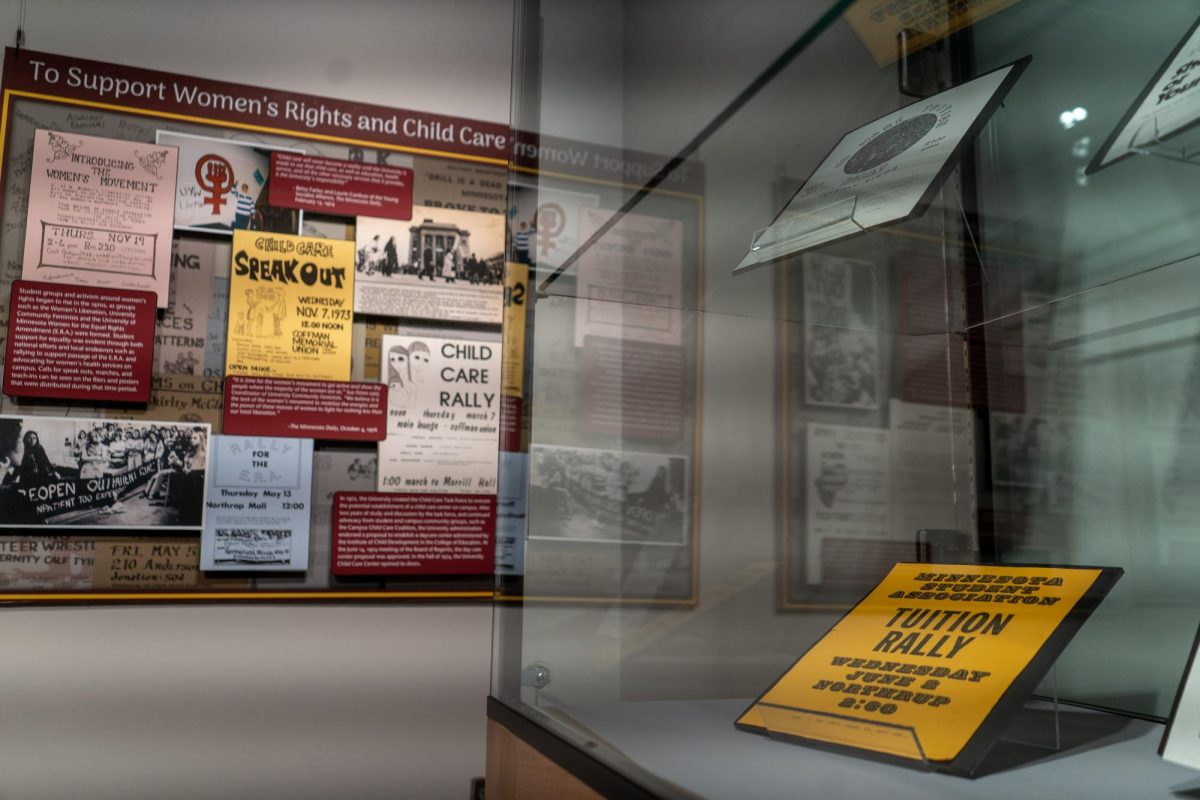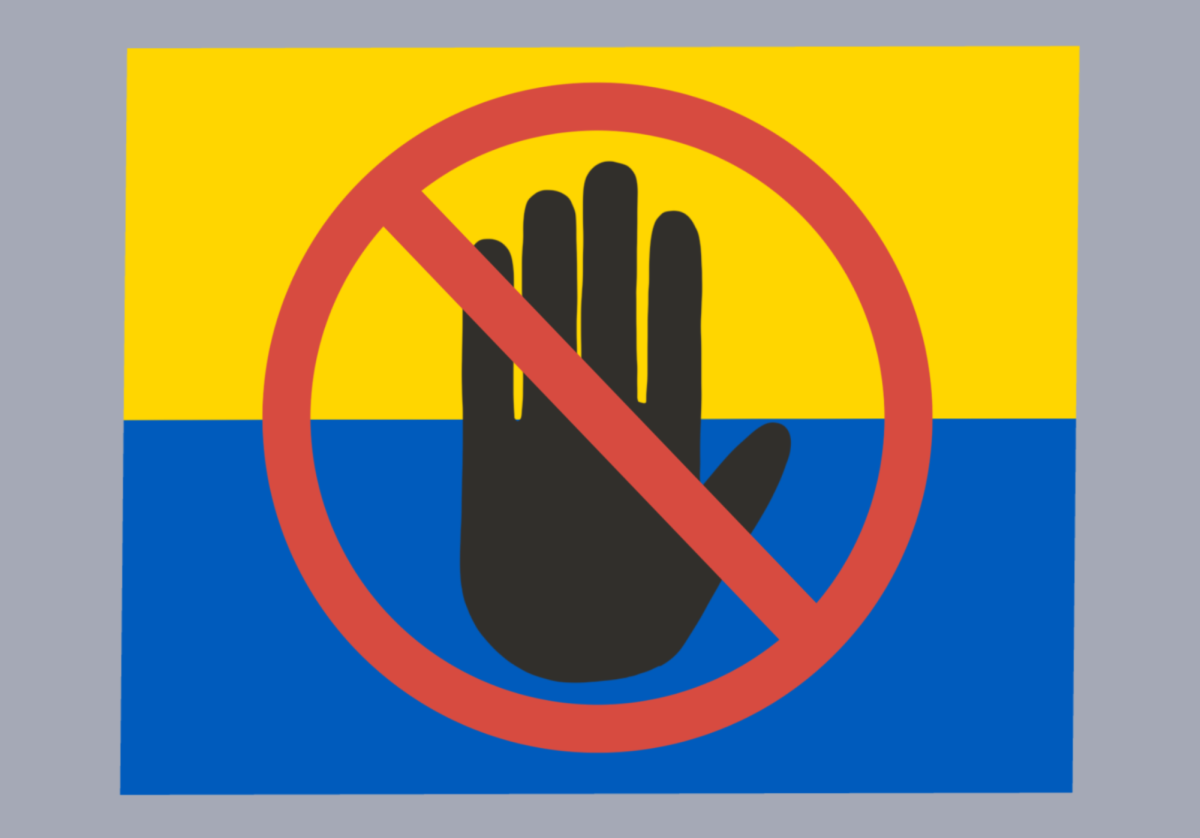The University of Minnesota’s International Student and Scholar Services (ISSS) is celebrating 150 years of international students on campus.
The University first welcomed its international undergraduates in 1874, where they made up less than 1% of the student body. Today, international students make up 11% of the student population with more than 5,200 students from 140 different countries.
ISSS advises and supports international students through their learning experiences in the United States, said Kathryn Gaylord-Miles, the associate director of Student Advising and Counseling for the office. In her time there, she has seen students rely on a wide network of counseling resources.
“I think that the ISSS office here, and the University as a whole, have a set of support resources for international students that’s really unique,” Gaylord-Miles said.
Gaylord-Miles said the student engagement team put on a webinar series for incoming students to help them prepare for college life at the University and in the U.S.
“I think that’s really unique, there aren’t very many schools that have something like that,” Gaylord-Miles said.
According to Gaylord-Miles, the office is chiefly there to support students in their efforts to accustom themselves to the U.S., but it can be a difficult adjustment process for some.
“Many of the staff here have lived overseas, we’ve studied or worked there and gone through some of the same experiences ourselves,” Gaylord-Miles said. “It takes getting used to. For some students that’s a really positive change and they’re excited to build relationships with faculty, but for some students, it takes a little bit longer because it’s something very new for them.”
Gaylord-Miles said she recognizes it is no easy task.
“There’s a lot of things that are different and I think they can be positive or negative for different students,” Gaylord-Miles said.
Expectations that may seem simple for non-international students often come as challenges for international students. For example, classroom participation and talking with professors outside the classroom can be among the biggest challenges.
For students like Maryam Aghayeva, a second-year biomedical engineering major from Baku, Azerbaijan, the transition process is more complex than it seems.
“It’s a very individual experience,” Aghayeva said. “It’s really based on the personality of the student. I know some international students that are friends with everyone on campus and they know everyone, but I know there are some that are less social than that. It’s really all based on your personality.”
Aghayeva said the key to making valuable connections on campus has been finding her comfort zone.
“I had Calculus my first semester, and I’m really good at math, so naturally, I made a lot of friends,” Aghayeva said. “I was helping people, I was telling them ‘Let’s go study!’, and they appreciated the help. You just have to find your own thing and connect with your own people in order to be comfortable.”
For many students, adjusting to American culture has been a tumultuous experience.
“I feel like the U.S. has culture, but it’s modern culture,” Aghayeva said. “Everything in the world is affected in a way by U.S. culture. Students from around the world, whether they know or not, are influenced by U.S. culture.”
Aghayeva said even though she was somewhat familiar with American culture, she still felt some growing pains in her first couple of months.
“The way people are here is different. They’re nice, but the niceness is more of a polite gesture,” Aghayeva said. “People from my country, and generally from the East, they’re not nice to you right off the bat. If they are nice to you, that means they like you. It’s much more of a friendly gesture, but over here, it’s not like that.”
Beth Isensee, assistant director of ISSS, has been working in the office for twenty years. She said a little bit of confusion is normal for incoming international students.
“Everyone, when they start at the University, is anxious, a bit nervous or unsure. They may even feel like a little bit of an imposter,” Isensee said. “But I love that people have the resiliency to travel across the world and try to be a student in a completely different educational context. There’s just so much learning that the student does, but there’s also a lot of learning that the University does.”
Isensee said the office cannot contain its excitement for the big celebration.
“Every event we have, we’re going to be in the theme of 150 years,” Isensee said. “The goal is we’re going to feature 150 stories from the international alumni, and we’re working on that right now.”
Isensee said the easiest way for students to get involved with the office is at Small World Coffee Hour, which is every other Friday at the RecWell and provides opportunities for non-international and international students to share a meal.
Isensee said it is the students who make this celebration. She said working with students to guide them in their experiences is what makes her job meaningful.
“I absolutely love working with students, and I absolutely love being a part of the lives of our international students. They are so amazing and I get tons of energy from them,” Isensee said. “When you get to talk to someone every day, and you learn something new from them or gain a new perspective and get your views challenged, it just makes a really dynamic space to be in. I’ve been here for twenty years and every day feels like a total adventure.”














Matk
Sep 11, 2024 at 10:01 am
Great article! Really loved the student point of view. Would love to see a follow up to get a broader student point of view at year’s end.